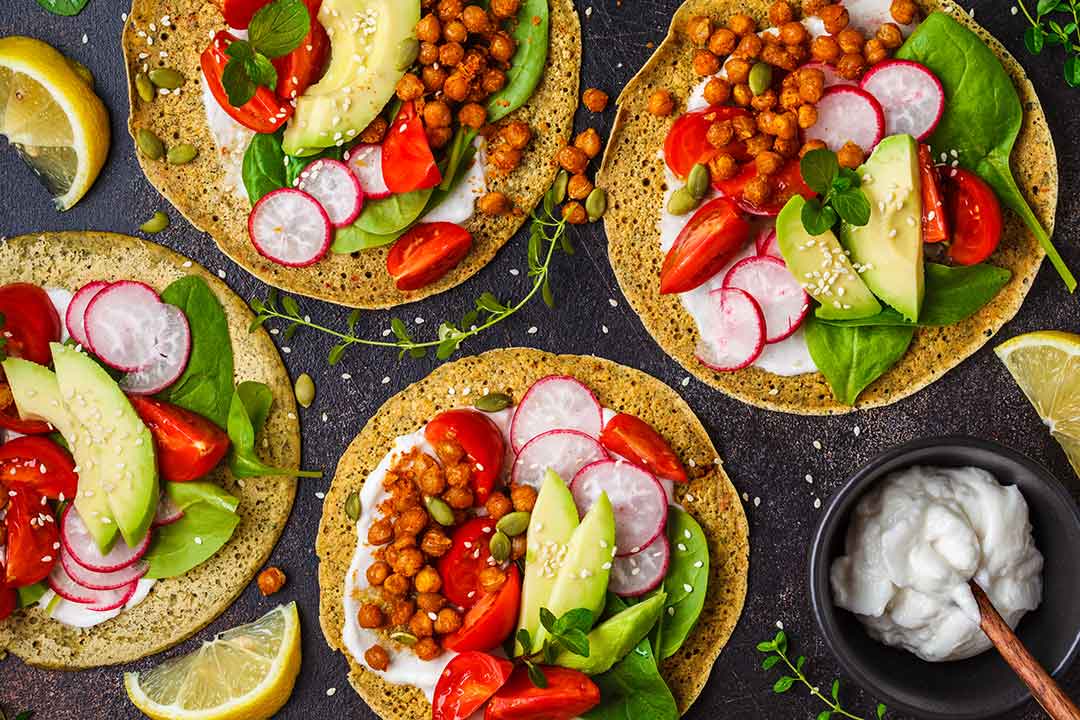Before you can meet the dietary needs of those who prefer or require plant-based diets, you need to know all the different forms those who consider themselves to be “vegetarians” can take.
“Do you have a vegetarian option?” These words once struck fear into the hearts of unprepared banquet servers and venue kitchen staff, who at best would scramble to whip up some brown rice and steamed broccoli in hopes that would satisfy the vegetarian conference-goer’s needs.
With almost of fifth of the U.S. population either identifying as vegetarian or interested in going veggie at least part time (7.3 percent and 11.9 percent, respectively, according to the Vegetarian Times, chances are people with plant-based meal expectations will be at your events. Now that many restaurants are incorporating vegetarian or vegan options — even Burger King is now serving a meat-free Whopper — it stands to reason that most meeting professionals ask well in advance for any dietary requirements and/or preferences their attendees’ may have. Surely in this day and age it is not so difficult to ensure that the kitchen will have options available that not only can tick the “vegetarian” or “vegan” box, but also taste just as delicious as the meatier options, right?
Unfortunately, while it is getting rarer, those who require, or just prefer, a plant-based diet sometimes still do find themselves to be an unwelcome afterthought at some group food and beverage events.
October isn’t just for ghosts, goblins and candy corn — it’s also Vegetarian Awareness Month. Let’s celebrate by taking a deeper dive into all the different forms of vegetarianism that your attendees may follow.
What is a Vegetarian?
That may seem to be a simple question, but like so much related to dietary needs today, there are many shades of veggie — some of which venture outside the strict grains/fruit/vegetable/legume/nuts/seeds lines toed by what many think of as a “vegetarian” diet.
The traditionalist version are vegans, who not only do not eat any animal, fish or poultry meat, but also eschew dairy products, eggs, and animal byproducts such as honey and gelatin. The vegan lifestyle often extends beyond diet to also exclude clothes or other products made from animals, such as leather or wool.
But there are people in several other dietary categories who also consider themselves to be “vegetarians”:
- Lacto vegetarians will eat honey, milk, cheese and other dairy products.
- Ovo-vegetarians will consume eggs and honey but not dairy products.
- Lacto-ovo-vegetarians will eat eggs, honey and dairy products.
There also are those who, while they do not maintain meat-free diets, do limit the types of animal proteins they are willing to consume. These are generally called “flextarians,” and can include pescatarians (those who limit their meat consumption to fish and seafood), and pollotarians (those who limit their meat sources to poultry and fowl).
The flexitarian category also includes reductarians — those who try to minimize meat, dairy, honey and eggs overall in their diets. These folks may go with just plant-based meals once a week, along the lines of a meatless Monday, only eating these foods when out at a restaurant (or a conference), or going meatless for the most part but indulging in the occasional meat, fish or chicken splurge.
Another interesting category your attendees could fall into is that of climatarian. These attendees are concerned about the carbon footprint of the foods they eat, and may question you, and your venue’s chefs, about farm-to-table policies. If you know you have a number of climatarians in your group, be even more mindful than usual about how the food you serve is sourced. For example, lobster may in fact be a reasonable choice for a Midwest meeting, but be prepared to defend the decision to serve something that appears to be environmentally costly to harvest and transport to your event.



